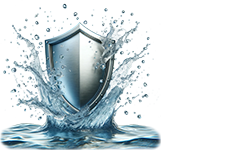Just like humans, pets need access to clean, safe water to thrive. While we often focus on our own hydration, it’s easy to overlook the importance of water quality for our furry companions. Providing safe water for pets is crucial for their overall health and well-being. This post from Safe Water Solutions LLC will explore why water quality matters for pets and offer practical tips to ensure they’re always drinking the best.
Why Water Quality Matters for Pets
Water plays a vital role in numerous bodily functions for pets, including:
- Hydration: Water regulates body temperature, transports nutrients, and removes waste products. Dehydration can lead to serious health problems, including organ damage.
- Organ Function: Kidneys and other vital organs rely on adequate hydration to function properly. Contaminated water can put extra strain on these organs, potentially leading to disease.
- Digestion: Water aids in digestion and helps prevent constipation.
- Joint Health: Proper hydration helps lubricate joints, promoting mobility and comfort.
Contaminated water can expose pets to various harmful substances, including:
- Bacteria and Parasites: These can cause gastrointestinal upset, vomiting, diarrhea, and other illnesses.
- Heavy Metals: Lead, arsenic, and other heavy metals can accumulate in a pet’s system, leading to long-term health problems.
- Chemicals: Pesticides, herbicides, and other chemicals can be present in water sources and pose health risks to pets.
- Chlorine and Chloramines: While used to disinfect water, these chemicals can have an unpleasant taste and odor, potentially discouraging pets from drinking enough water. In high concentrations, they could also cause irritation.
Practical Tips for Providing Safe Water for Pets
Here are some actionable steps you can take to ensure your pets have access to safe drinking water:
- Use Filtered Water: Just as you might filter your own drinking water, consider filtering your pet’s water as well. A good quality water filter can remove many common contaminants, including chlorine, heavy metals, and sediment.
- Change Water Regularly: Don’t let water sit in your pet’s bowl for days. Change it at least once a day, preferably more often, to prevent the growth of bacteria and other microorganisms.
- Clean Water Bowls Frequently: Wash your pet’s water bowl daily with warm, soapy water and rinse thoroughly. This helps prevent the buildup of biofilm, a slimy layer of bacteria that can contaminate the water.
- Avoid Puddles and Stagnant Water: When out for walks, prevent your pet from drinking from puddles, ponds, or other stagnant water sources. These can harbor harmful bacteria, parasites, and chemicals.
- Consider a Pet Water Fountain: Many pets prefer drinking from moving water. A pet water fountain can encourage them to drink more and also helps keep the water fresher.
- Be Mindful of Travel: When traveling with your pet, bring bottled or filtered water from home. Changes in water sources can cause stomach upset.
Addressing Common Concerns: FAQs about Safe Water for Pets
Here are some frequently asked questions we receive at Safe Water Solutions LLC:
1. Question: Is tap water safe for my pet?
Answer: While municipal tap water is generally treated to meet safety standards for human consumption, it can still contain chlorine, chloramines, and other contaminants that may not be ideal for pets. Filtering tap water is a good way to improve its quality for your furry friend. If you have well water, testing is highly recommended, as well water can contain naturally occurring contaminants.
2. Question: Can I give my pet bottled water?
Answer: Yes, bottled water is generally safe for pets. However, be mindful of the type of bottled water you choose. Some bottled waters may contain added minerals that could be problematic for pets with certain health conditions. Check with your veterinarian if you have concerns. Also, be mindful of the environmental impact of plastic bottles and consider using refillable containers whenever possible.
3. Question: How can I tell if my pet’s water is contaminated?
Answer: It’s often difficult to tell if water is contaminated simply by looking at it. However, if you notice any changes in your pet’s drinking habits, such as drinking less water than usual, or if they develop gastrointestinal issues like vomiting or diarrhea, it’s a good idea to consult your veterinarian and consider having your water tested. Foul odors, discoloration, or visible particles in the water are also strong indicators of contamination.
Protect Your Pet’s Health with Safe Water Solutions LLC
Providing safe water for pets is a crucial aspect of responsible pet ownership. By following the tips outlined in this post, you can help ensure your furry companions stay hydrated and healthy. At Safe Water Solutions LLC, we’re dedicated to helping families, including their pets, access clean, safe water. We offer a variety of water filtration and treatment solutions that can improve the quality of your home’s water, making it safer for everyone, including your beloved animals.
Don’t wait until a problem arises. Contact Safe Water Solutions LLC today for a free water test and let us help you create a healthier environment for your entire family, including your pets. We can assess your water quality, recommend the best solutions for your needs, and provide expert advice on maintaining optimal hydration for your furry friends. Invest in their health and well-being by ensuring they have access to the cleanest, safest water possible.

